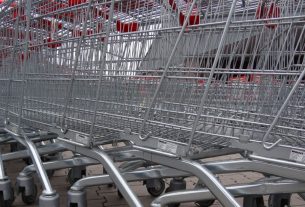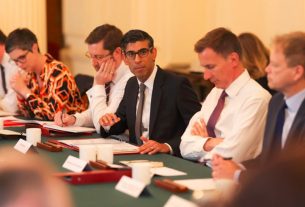UK inflation unexpectedly dipped last month to 9.9% after petrol prices finally reflected the recent drop in oil prices.
The slight relief has been tempered by the 13 month consecutive rise in food prices coming on top of warnings the upward trend in underlying inflationary pressures will likely see another interest rate rise by the Bank of England (BoE).
Economists are now predicting that consumer price index (CPI) inflation will not reach the 15% forecast for the autumn, peaking instead around 11%, thanks largely to the government’s intervention that will cap average domestic energy bills at £2,500.
Despite inflation falling from July’s 40 year high rate of 10.1%, the UK still has the highest inflation rate of any G7 country.
The 0.2% fall is mainly the result of falling forecourt prices that has seen the average price of petrol fall from £1.90 per litre in July to £1.75 in August. Further drops in forecourt prices are expected with oil now trading at just over $90 per barrel, although sterling’s weakness against the dollar – the pound hit a 37-year low against the greenback last week – is another factor slowing the fall of petrol prices.
Fuel prices may be falling but Office for National Statistics figures show food price inflation is continuing to climb with costs up from 12.8% in July to 13.4% last month – the highest rate for 14 years.
The price of low-fat milk has risen 40.4% in the past 12 months, the ONS figures show. Butter is up 29.5% over the same period with olive oil up 26.6%, eggs up 18.5% and ready-made meals up 18.2%.
ONS figures show prices for services also rose from 5.7% to 5.9% over the same period.
The Financial Times reports that core inflation – “excluding the more volatile food, alcoholic drinks, energy and fuel prices” – was also up from 6.2% in July to 6.3% in the year to August.
The Guardian states that inflation is now “almost five times higher than the official [BoE] 2% target” and “more than three times higher than the 3.2%” recorded this time last year.
Savings whittled away by inflation
The Telegraph reports that inflation is whittling away at the wealth of savers given average easy-access accounts are only paying 0.85% interest. Inflation at 9.9% means a saver with £10,000 deposited will be £823 worse off a year in real terms.
The outlook is not good for savers as Inflation is not expected to get close to the BoE target of 2% until 2024. High street banks have been criticised for introducing the interest rate rise to mortgage accounts but not to savings account.
Interest rates are currently at 1.75% and analysts expect the BoE will announce another rise at next week’s meeting, taking the rate to 2.25%.
House prices rising – for now
The cost of living crisis – fuelled by inflation, fuel and energy price rises – has so far had little impact on the housing market.
House prices are rising at their fastest rate for 20 years and are up 15.5% in the last year. The average cost of home in the UK in July was £292,000 – £39,000 more than the same time last year, the ONS revealed.
However, estate agents have pointed out that in July 2021 the stamp duty holiday ended, causing prices to fall as buyers rushed to purchase in June. They add that many of the purchases made in July 2022 would have been agreed months earlier – before interest rates were raised affecting mortgage rates.
“Looking ahead, we expect house prices to fall outright in the second half of the year, given the size of the rise in mortgage rates,” said Gabriella Dickens of consultancy Pantheon Macroeconomics.




